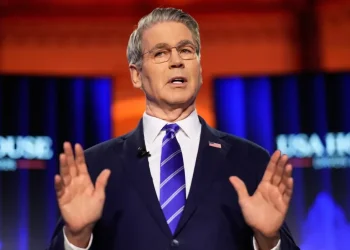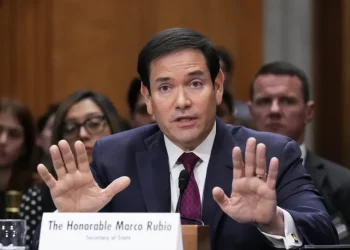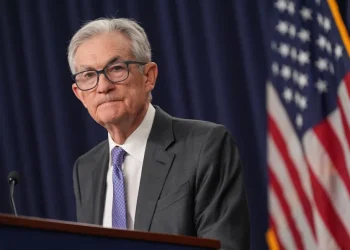Canada’s Election Becomes a Referendum on Trump’s Influence
Ottawa — April 28, 2025 Canada’s federal election has become much more than a battle between Prime Minister Mark Carney’s Liberals and Pierre Poilievre’s Conservatives — it turned into an unexpected referendum on the influence of U.S. President Donald Trump.
What started as a traditional election campaign rapidly shifted when Trump made a series of provocative remarks about Canada. Among them: suggesting Canada should consider becoming the 51st U.S. state and threatening steep new tariffs if trade terms weren’t renegotiated to favor the U.S. These comments sparked a surge of nationalism across Canada and quickly became a major focal point of the campaign.
A Surge of Nationalism Boosts Carney’s Liberals
Initially trailing in the polls, Prime Minister Mark Carney found new momentum by standing firmly against Trump’s comments. Carney positioned himself as a staunch defender of Canadian sovereignty, repeatedly assuring voters that Canada would not be bullied by foreign leaders — especially not by its powerful southern neighbor.
That message resonated deeply. Voters increasingly saw Carney as the candidate best suited to stand up for Canadian independence on the world stage. His strong rhetoric contrasted sharply with Conservative leader Pierre Poilievre, who faced mounting criticism for being too soft on Trump’s interference.
Poilievre, once the clear favorite, struggled to distance himself from Trump’s shadow. Critics accused him of appearing too willing to accommodate U.S. interests — a stance that alienated many voters concerned about protecting Canada’s autonomy.
Record Early Turnout Reflects High Stakes
The campaign’s intensity was reflected in voter engagement. Elections Canada reported a record 7.3 million early ballots cast ahead of election day — a clear sign that Canadians were energized, and anxious, about the future direction of their country.
Voters cited a mix of pressing domestic issues driving them to the polls: housing affordability, job scarcity, immigration pressures, and economic uncertainty. Yet underlying all of these was a larger, more emotional question — how much influence should the United States, and Donald Trump in particular, have over Canada’s future?
Both the Liberals and Conservatives pledged to renegotiate trade terms with Washington, but their approaches could not have been more different. Carney promised a hard-nosed defense of Canadian interests, while Poilievre emphasized maintaining strong but respectful relations with the U.S., a message that became harder to sell as Trump’s rhetoric escalated.
What’s Next for Canada?
As election results begin to trickle in, the stakes are clear: whoever wins will have the immediate challenge of steering Canada through increasingly turbulent relations with its largest trading partner.
If Carney retains power, expect a firmer, more nationalistic tone in dealing with the U.S., particularly in upcoming trade negotiations. If Poilievre pulls off an upset, he will need to work swiftly to reassure Canadians that he can defend national interests without appearing beholden to Trump’s aggressive policies.
Either way, this election has made one thing certain: for Canadians, questions about their sovereignty and national pride are no longer abstract — they are front and center, shaping the country’s political future.
This article was rewritten by JournosNews.com based on verified reporting from trusted sources. The content has been independently reviewed, fact-checked, and edited for accuracy, neutrality, tone, and global readability in accordance with Google News and AdSense standards.
All opinions, quotes, or statements from contributors, experts, or sourced organizations do not necessarily reflect the views of JournosNews.com. JournosNews.com maintains full editorial independence from any external funders, sponsors, or organizations.
Stay informed with JournosNews.com — your trusted source for verified global reporting and in-depth analysis. Follow us on Google News, BlueSky, and X for real-time updates.













